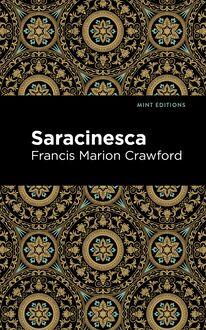-
 Univers
Univers
-
 Ebooks
Ebooks
-
 Livres audio
Livres audio
-
 Presse
Presse
-
 Podcasts
Podcasts
-
 BD
BD
-
 Documents
Documents
-
- Cours
- Révisions
- Ressources pédagogiques
- Sciences de l’éducation
- Manuels scolaires
- Langues
- Travaux de classe
- Annales de BEP
- Etudes supérieures
- Maternelle et primaire
- Fiches de lecture
- Orientation scolaire
- Méthodologie
- Corrigés de devoir
- Annales d’examens et concours
- Annales du bac
- Annales du brevet
- Rapports de stage
La lecture à portée de main
Vous pourrez modifier la taille du texte de cet ouvrage
Découvre YouScribe en t'inscrivant gratuitement
Je m'inscrisDécouvre YouScribe en t'inscrivant gratuitement
Je m'inscrisEn savoir plus
Vous pourrez modifier la taille du texte de cet ouvrage
En savoir plus

Description
The Unclassed (1884) is a novel by George Gissing. Inspired by his own struggles as a working writer forced to take up odd jobs while failing to gain traction with critics and readers, Gissing crafts a tale of talent, ambition, and romance fallen victim to the vicissitudes of class. The Unclassed poses important questions about convention in Victorian England while proving surprisingly relevant for our own times. Struggling to make it as a lower-class Londoner, Osmond Waymark finds himself unable to give up his literary ambitions. Desperate and lonely, he strikes up a friendship with Julian Casti, a similarly down-and-out young writer who suffers from both poverty and xenophobia as the son of Italian immigrants. When Julian agrees to an ill-advised marriage to Harriet Smales, a rude young woman, he inadvertently exposes Osmond to her manipulative and vindictive ways. As Osmond falls for Ida Starr, a prostitute’s daughter driven to rise above her circumstances, he unwittingly angers Harriet, whose friend Maud is secretly in love with him. In a shocking turn of events, Harriet conspires to get Ida arrested for theft, then maneuvers to get Osmond into the arms of Maud. The two become engaged, leaving Ida—the novel’s heroine—to rely on her wits and survival instinct to not only prove her innocence, but win back the man she loves. In The Unclassed, Gissing explores the limits of social mobility, the struggles faced by young writers, and the power of jealousy to poison both promise and hope. With a beautifully designed cover and professionally typeset manuscript, this edition of George Gissing’s The Unclassed is a classic work of English literature reimagined for modern readers.
Sujets
Informations
| Publié par | Mint Editions |
| Date de parution | 14 mai 2021 |
| Nombre de lectures | 0 |
| EAN13 | 9781513286549 |
| Langue | English |
| Poids de l'ouvrage | 1 Mo |
Informations légales : prix de location à la page 0,0500€. Cette information est donnée uniquement à titre indicatif conformément à la législation en vigueur.
Extrait
The Unclassed
George Gissing
The Unclassed was first published in 1884.
This edition published by Mint Editions 2021.
ISBN 9781513281520 | E-ISBN 9781513286549
Published by Mint Editions®
minteditionbooks.com
Publishing Director: Jennifer Newens
Design & Production: Rachel Lopez Metzger
Project Manager: Micaela Clark
Typesetting: Westchester Publishing Services
C ONTENTS I. S CHOOL II. M OTHER AND C HILD III. A NTECEDENTS IV. C HRISTMAS IN T WO H OMES V. P OSSIBILITIES VI. A N A DVERTISEMENT VII. B ETWEEN O LD AND N EW VIII. A CADEMICAL IX. T HE C OUSINS X. T HE W AY O UT XI. B Y THE W AYSIDE XII. R ENT D AY XIII. A M AN -T RAP XIV. N EAR AND F AR XV. U P THE R IVER XVI. E XAMPLE W ITHOUT P RECEPT XVII. T HE M ISSING Y EARS XVIII. T HE E NDERBYS XIX. I N THE M EANTIME XX. A S UGGESTION XXI. D IPLOMACY XXII. U NDER -C URRENTS XXIII. T HE O PPORTUNITY XXIV. J USTICE XXV. A RT AND M ISERY XXVI. S TRAYING XXVII. T HE W ILL TO L IVE XXVIII. S LIMY ’ S D AY XXIX. F REEDOM XXX. E LM C OURT XXXI. N EW P ROSPECTS XXXII. A V ISION OF S IN XXXIII. A G ARDEN -P ARTY XXXIV. A L ATE R EVENGE XXXV. H OUSE -W ARMING XXXVI. N O WAY BUT T HIS XXXVII. F ORBIDDEN XXXVIII. O RDERS OF R ELEASE
I
S CHOOL
T here was strange disorder in Miss Rutherford’s schoolroom, wont to be the abode of decorum. True, it was the gathering-time after the dinner-hour, and Miss Rutherford herself was as yet out of sight; but things seemed to be going forward of a somewhat more serious kind than a game of romps among the children. There were screams and sobbings, hysterical cries for help; some of the little girls were crowding round an object in one corner of the room, others appeared to be getting as far away from it as possible, hiding their pale faces in their hands, or looking at one another with terrified eyes. At length one more thoughtful than the rest sped away out of the room, and stood at the bottom of the stairs, calling out her teacher’s name as loud as she could. A moment, and Miss Rutherford came hastening down, with alarmed aspect, begging to be told what was the matter. But the summoner had turned and fled at the first sight of the lady’s garments. Miss Rutherford darted into the schoolroom, and at once there was quietness, save for half-choked sobs here and there, and a more ominous kind of moaning from the crowded corner.
“Gracious goodness, children, what is it? Who’s that lying on the floor? Harriet Smales! What ever has happened?”
The cluster of children had fallen aside, exposing a strange picture. On the ground lay a girl of twelve, her face deadly pale, save in the places where it was dabbled with fresh blood, which still streamed from a gash on the right side of her forehead. Her eyes were half opened; she was just recovering consciousness; a moan came from her at intervals. She had for support the lap and arms of a little girl, perhaps two years younger than herself. Heedless of the flowing blood, this child was pressing her pale cheek against that of the wounded one, whose name she kept murmuring in pitiful accents, mixed with endearing epithets. So unconscious was she of all around, that the falling back of the other children did not cause her to raise her eyes; neither was she aware of Miss Rutherford’s first exclamations, nor yet of the question which was next addressed to her by the horrified schoolmistress.
“How did it happen? Some of you run at once for a doctor—Dr. Williams in Grove Road—Oh, quick!—Ida Starr, how did it happen?”
Ida did not move, but seemed to tighten her embrace. The other pupils all looked fearfully hither and thither, but none ventured to speak.
“Ida!” repeated Miss Rutherford, dropping on her knees by the two, and beginning to wipe away some of the blood with her handkerchief. “Speak, child! Has some one gone for the doctor? How was it done?”
The face at length turned upon the questioner was almost as ghastly and red-stained as that it had been pressed against. But it had become self-controlled; the dark eyes looked straight forward with an expression marvellously full of meaning in one so young; the lips did not tremble as they spoke.
“I did it, Miss Rutherford. I have killed Harriet. I, and nobody else.”
“You? How, child?”
“I killed her with the slate, Miss Rutherford; this slate, look.”
She pointed to a slate without a frame which lay on the floor. There were sums worked on the uppermost side, and the pencil-marks were half obliterated. For a moment the schoolmistress’s amazement held her motionless, but fresh and louder moans recalled her to the immediate necessities of the case. She pushed Ida Starr aside, and, with the help of a servant-girl who had by this time appeared in the room, raised the sufferer into a chair, and began to apply what remedies suggested themselves. The surgeon, whom several of the children had hastened to seek, only lived a few yards away, and his assistant was speedily present. Harriet Smales had quite recovered consciousness, and was very soon able to give her own account of the incident. After listening to her, Miss Rutherford turned to the schoolchildren, who were now seated in the usual order on benches, and spoke to them with some degree of calm.
“I am going to take Harriet home. Lucy Wood, you will please to see that order is preserved in my absence; I shall only be away twenty minutes, at the most. Ida Starr, you will go up into my sitting-room, and remain there till I come to you. All take out your copy-books; I shall examine the lines written whilst I am away.”
The servant, who had been despatched for a cab, appeared at the door. Harriet Smales was led out. Before leaving the house, Miss Rutherford whispered to the servant an order to occupy herself in the sitting-room, so as to keep Ida Starr in sight.
Miss Rutherford, strict disciplinarian when her nerves were not unstrung, was as good as her promise with regard to the copy-books. She had returned within the twenty minutes, and the first thing she did was to walk along all the benches, making a comment here, a correction there, in another place giving a word of praise. Then she took her place at the raised desk whence she was wont to survey the little room.
There were present thirteen pupils, the oldest of them turned fifteen, the youngest scarcely six. They appeared to be the daughters of respectable people, probably of tradesmen in the neighbourhood. This school was in Lisson Grove, in the north-west of London; a spot not to be pictured from its name by those ignorant of the locality; in point of fact a dingy street, with a mixture of shops and private houses. On the front door was a plate displaying Miss Rutherford’s name,—nothing more. That lady herself was middle-aged, grave at all times, kindly, and, be it added, fairly competent as things go in the world of school. The room was rather bare, but the good fire necessitated by the winter season was not wanting, and the plain boarding of the floor showed itself no stranger to scrubbings. A clock hanging on the wall ticked very loudly in the perfect stillness as the schoolmistress took her seat.
She appeared to examine a book for a few moments, then raised her head, looked at the faces before her with a troubled expression, and began to speak.
“I wish to know who can give me any account of the way in which Harriet Smales received her hurt. Stop! Hands only, please. And only those raise their hands who actually saw the blow struck, and overheard all that led to it. You understand, now? One, two, three—seven altogether, that is quite enough. Those seven will wait in the room at four o’clock till the others have all gone. Now I will give the first class their sums.”
The afternoon passed Very slowly to teacher and pupils alike. When the clock struck four, work was put away with more than the usual noise and hurry. Miss Rutherford seemed for a time to be on the point of making some new address to the school before the children departed, but eventually she decided to keep silence, and the dismissal was got over as quickly as possible. The seven witnesses remained, solemnly seated at their desks, all anxious-looking.
“Lucy Wood,” Miss Rutherford began, when the door was closed and quiet, “you are the eldest. Please tell me all you can of this sad affair.”
There was one of the seven faces far more discomposed than the rest, a sweet and spiritual little countenance; it was tear-stained, red-eyed; the eager look, the trembling lips spoke some intimate cause of sympathy. Before the girl addressed had time to begin her answer, this other, one would have said in spite of herself, intervened with an almost agonised question.
“Oh, Miss Rutherford, is Harriet really dead?”
“Hush, hush!” said the lady, with a shocked look. “No, my dear, she is only badly hurt.”
“And she really won’t die?” pleaded the child, with an instant brightening of look.
“Certainly not, certainly not. Now be quiet, Maud, and let Lucy begin.”
Lucy, a sensible and matter-of-fact girl, made a straightforward narration, the facts of which were concurred in by her companions. Harriet Smales, it seemed, had been exercising upon Ida for some days her utmost powers of irritation, teasing her, as Lucy put it, “beyond all bearing.” The cause of this was not unknown in the school, and Miss Rutherford remembered the incident from which the malice dated. Harriet had copied a sum in class from Ida’s slate—she was always copying from somebody—and the teacher, who had somehow detected her, asked Ida plainly whether such was not the case. Ida made no reply, would not speak, which of course was taken as confirmatory evidence, and the culprit had accordingly received an imposition. Her spleen, thus aroused, Harriet vented upon the other girl, who, she maintained, ought to have stoutly denied the possibility of the alleged deceit, and so have saved her. She gave poor Ida no rest, and her persecution had culminated this afternoon; she began to “call Ida’s moth
-
 Univers
Univers
-
 Ebooks
Ebooks
-
 Livres audio
Livres audio
-
 Presse
Presse
-
 Podcasts
Podcasts
-
 BD
BD
-
 Documents
Documents
-
Jeunesse
-
Littérature
-
Ressources professionnelles
-
Santé et bien-être
-
Savoirs
-
Education
-
Loisirs et hobbies
-
Art, musique et cinéma
-
Actualité et débat de société
-
Jeunesse
-
Littérature
-
Ressources professionnelles
-
Santé et bien-être
-
Savoirs
-
Education
-
Loisirs et hobbies
-
Art, musique et cinéma
-
Actualité et débat de société
-
Actualités
-
Lifestyle
-
Presse jeunesse
-
Presse professionnelle
-
Pratique
-
Presse sportive
-
Presse internationale
-
Culture & Médias
-
Action et Aventures
-
Science-fiction et Fantasy
-
Société
-
Jeunesse
-
Littérature
-
Ressources professionnelles
-
Santé et bien-être
-
Savoirs
-
Education
-
Loisirs et hobbies
-
Art, musique et cinéma
-
Actualité et débat de société
- Cours
- Révisions
- Ressources pédagogiques
- Sciences de l’éducation
- Manuels scolaires
- Langues
- Travaux de classe
- Annales de BEP
- Etudes supérieures
- Maternelle et primaire
- Fiches de lecture
- Orientation scolaire
- Méthodologie
- Corrigés de devoir
- Annales d’examens et concours
- Annales du bac
- Annales du brevet
- Rapports de stage




















